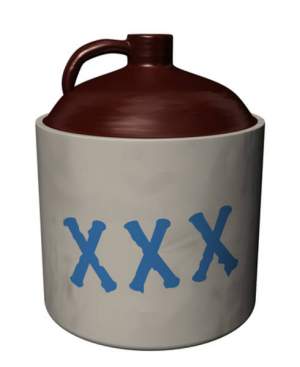
At Least Seven Inmates Poisoned from Prison Hooch
On November 26, 2012, the Pinal County Communication Director, Heather Murphy, announced that at least seven inmates from the Special Management Unit 1 of the Arizona State Prison Complex Eyman in Florence, Arizona show signs of botulism poisoning.
Last Saturday, four inmates became extremely ill and underwent treatment at a hospital. Another man arrived later Saturday night, and two more inmates showed up to the hospital with similar symptoms on Sunday.
All of the inmates are in intensive care and receiving treatment with anti-toxins. Once the Centers for Disease Control (CDC) receive a botulism poisoning confirmation, they release the anti-toxin to the state.
Authorities believe the men ingested thetoxin from a home-made alcoholic drink called “hooch” or “pruno.” The drink is made from fermented fruit. Laboratory testing has not confirmed the origin of the toxin as of yet though.
Sickness and death were common from botulism in the past, and the majority of the toxin came from home-canned fruit and foods. Increased safety in handling canned items has decreased the amount of botulism outbreaks in recent years.
Botulism is most often spread when the poison is ingested. The toxin can also spread through a wound or IV drug use. The poison is not spread by breathing, sneezing, or in the air.
An eighth inmate from the same state prison in Arizona was transferred to the hospital on November 27, 2012. His condition was not bad enough to administer anti-toxins, but he is still undergoing medical care at the hospital.
Early symptoms of exposure to Botulism include trouble speaking, chewing, and swallowing. If the person remains untreated, they can feel weak, have difficulty breathing, and even become paralyzed.
Again, it is believed the inmates ingested the toxin from the hooch, but the investigation is ongoing.
Source: Pinal County Government
Comments
Must Read
 A Full Guide to Prison
A Full Guide to PrisonPrison is the place or facility in which people that have been convicted of crimes and sentenced to imprisonment are sent.
 A History of Prison in the World
A History of Prison in the WorldThe concept of a penal colony or jail can date as far back to around 400 B.
 A List of Departments of Correction
A List of Departments of CorrectionFederal Department of CorrectionsThe Federal Department of Corrections is known as the Federal Bureau of Prisons.
 A Look at the Duties of a Prison Guard
A Look at the Duties of a Prison GuardA correctional office or prison guard is the person responsible for supervising correctional facilities or prisons.
 Alabama Department of Corrections
Alabama Department of CorrectionsThe Alabama Department of Corrections is currently headed by Commissioner Richard Allen and Chief Deputy Commissioner Vernon Barrett.
 An Explanation of False Imprisonment
An Explanation of False ImprisonmentFalse imprisonment can be defined as the restraining of an individual within a particular area without any proper justification or consent.
 Are Psychiatric Evaluations in Prisons Important
Are Psychiatric Evaluations in Prisons ImportantIn many criminal court cases, the issue of the defendant standing trial for certain crimes may often times be required to undergo a psychiatric evaluation, which is conducted by a forensic psychologist.
 Are There Jobs for Convicted Felons?
Are There Jobs for Convicted Felons?There may be as many as twelve million ex-felons in the United States of America, meaning that as much as eight percent of the working age population are seeking jobs for convicted felons who have completed their terms of service.
